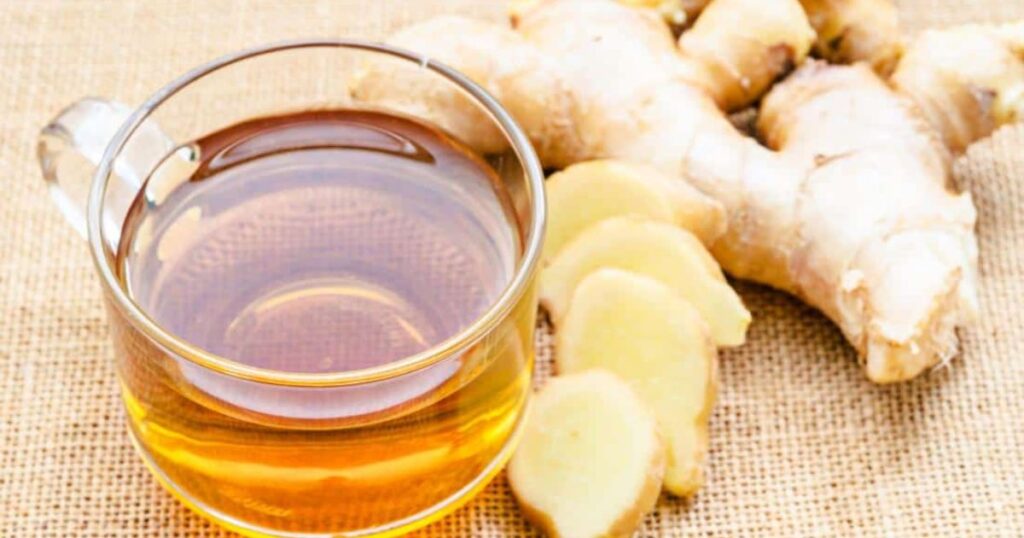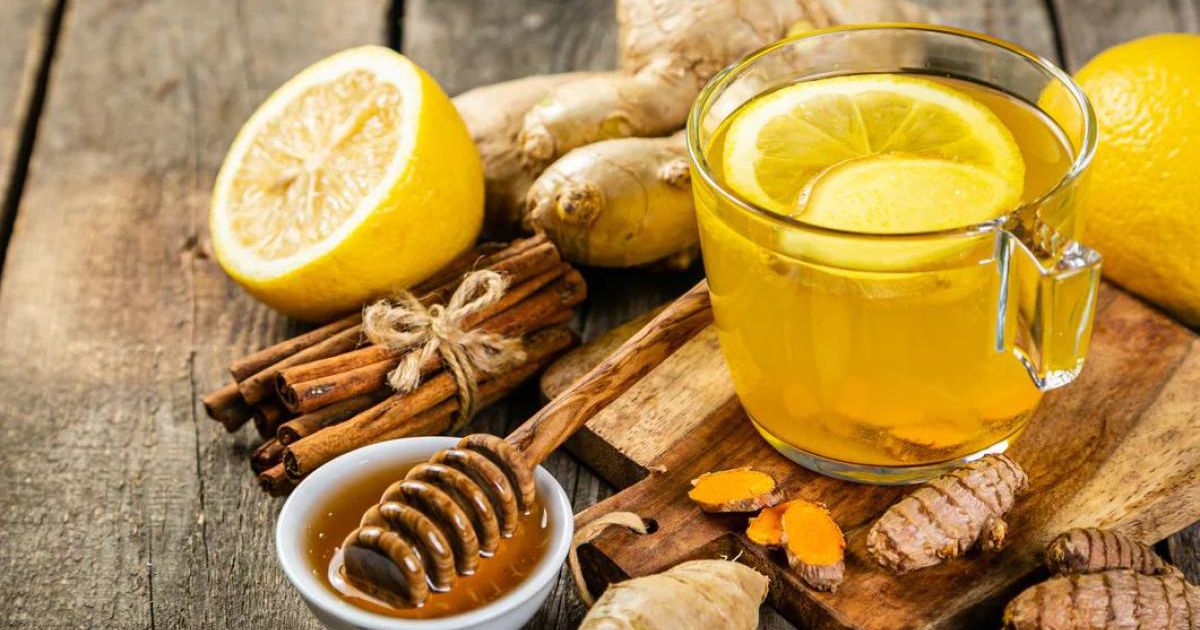Turmeric, the vibrant golden spice that has been a staple in Indian cuisine and Ayurvedic medicine for centuries, is gaining well-deserved recognition worldwide for its remarkable health benefits. One of the most popular ways to harness the goodness of turmeric is through a soothing and flavorful beverage – turmeric tea, also known as “haldi chai.” This ancient elixir has captured the interest of health enthusiasts across the United States, and for good reason. Let’s dive into the incredible world of turmeric tea and explore its potential to enhance your well-being.
What is Turmeric Tea?
Turmeric tea is a warm, comforting drink made by steeping turmeric root or powder in water, often combined with other ingredients like black pepper, ginger, cinnamon, and honey. The key component of turmeric is a powerful compound called curcumin, which gives the spice its distinctive yellow color and is responsible for many of its health-promoting properties.
To prepare turmeric tea, you can follow this simple recipe:
Ingredients:
- 1 inch fresh turmeric root, grated or 1 teaspoon turmeric powder
- 1 cup water
- 1/4 teaspoon black pepper (enhances curcumin absorption)
- Honey or lemon (optional, for added flavor)
Instructions:
- Grate or slice the turmeric root, or use turmeric powder.
- In a small saucepan, bring the water to a boil.
- Add the turmeric and black pepper, reduce heat, and simmer for 5-7 minutes.
- Strain the tea into a cup and add honey or lemon to taste.
Turmeric tea can also be found in instant powder mixes or pre-made tea bags for convenience, but fresh ingredients will provide the most potent benefits.
Powerful Anti-Inflammatory Properties

One of the most well-known benefits of turmeric tea is its ability to combat inflammation. Chronic inflammation is believed to be the root cause of many modern-day ailments, including arthritis, cardiovascular diseases, and even certain types of cancer.
The curcumin in turmeric is a highly effective anti-inflammatory agent. Numerous studies have demonstrated its ability to suppress inflammatory pathways and reduce markers of inflammation in the body. For instance, a 2016 study published in the Journal of Medicinal Food found that curcumin supplementation significantly improved symptoms of rheumatoid arthritis, a chronic inflammatory condition affecting the joints.
Antioxidant Powerhouse
In addition to its anti-inflammatory prowess, turmeric is a potent antioxidant. Antioxidants are crucial for neutralizing free radicals, which are unstable molecules that can damage cells and contribute to aging and disease.
The curcumin in turmeric has been shown to possess strong antioxidant activity, helping to protect the body from oxidative stress and its associated negative health effects. A study published in the journal Nutrients found that curcumin supplementation significantly increased levels of antioxidant enzymes and reduced markers of oxidative stress in participants.
Supporting Cognitive Function and Brain Health
Turmeric’s benefits extend beyond physical health; it may also play a role in supporting cognitive function and brain health. Curcumin has been found to cross the blood-brain barrier, a protective barrier that prevents many substances from entering the brain.
Research suggests that curcumin may have neuroprotective effects and could potentially help in the management of neurodegenerative diseases like Alzheimer’s and Parkinson’s. A 2018 study published in the American Journal of Geriatric Psychiatry found that curcumin supplementation improved cognitive function and mood in older adults with mild cognitive impairment.
Boosting Immune System and Fighting Infections

Turmeric tea may also play a role in strengthening the immune system and combating infections. The curcumin in turmeric has been found to possess antimicrobial and immunomodulatory properties, meaning it can help regulate and enhance the body’s immune response.
“Turmeric is a powerful antioxidant and anti-inflammatory, making it a natural ally for boosting immunity and overall health.” – Dr. Andrew Weil, Integrative Medicine Expert
A study published in the Journal of Clinical Immunology showed that curcumin supplementation increased various immune cell types, including antibodies, cytokines, and T-cells, which are essential for fighting off pathogens and infections.
Furthermore, turmeric’s antimicrobial properties have been demonstrated against various bacteria, viruses, and fungi, making it a potential ally in combating viral infections like the flu.
Other Potential Benefits
While more research is needed, turmeric tea has been associated with several other potential health benefits:
- Digestive Health: The anti-inflammatory properties of curcumin may help soothe digestive issues like irritable bowel syndrome (IBS), Crohn’s disease, and ulcerative colitis.
- Weight Management: Some studies suggest that curcumin may aid in weight loss by reducing inflammation, improving metabolism, and decreasing the formation of fat tissue.
- Skin Health: The antioxidant and anti-inflammatory effects of curcumin may help protect the skin from damage and improve various skin conditions like acne, eczema, and photoaging.
- Cancer Prevention: While more research is needed, some studies have indicated that curcumin may have cancer-preventive properties by inhibiting tumor growth and promoting cancer cell death.
It’s important to note that while these benefits are promising, more conclusive research is still needed, and turmeric tea should not be considered a cure or replacement for conventional medical treatments.
Tips for Incorporating Turmeric Tea into Your Diet
To reap the potential health benefits of turmeric tea, it’s recommended to consume it regularly as part of a balanced diet and healthy lifestyle. Here are some tips for incorporating turmeric tea into your routine:
- Daily Intake: While there is no definitive recommended daily intake for turmeric, many experts suggest consuming around 1-3 grams of curcumin per day for potential health benefits.
- Creative Recipes: Turmeric tea can be enjoyed in various ways – as a traditional warm beverage, iced and refreshing, or even incorporated into smoothies, lattes, and baked goods.
- Quality Matters: When purchasing turmeric or curcumin supplements, choose high-quality products from reputable brands to ensure potency and purity.
- Enhance Absorption: Adding black pepper or a source of healthy fats (like coconut oil or milk) can help increase the absorption of curcumin in the body.
Remember, while turmeric tea is generally safe for most people, it’s always a good idea to consult with a healthcare professional before making significant changes to your diet, especially if you have any underlying medical conditions or are taking medications.
In conclusion, turmeric tea is a delightful and potentially powerful addition to a healthy lifestyle. With its anti-inflammatory, antioxidant, and immune-boosting properties, this ancient elixir may offer a wide range of health benefits, from supporting cognitive function to fighting infections. So why not embrace the golden goodness of turmeric tea and experience its potential for yourself? Your body (and taste buds) may just thank you!
Also Read This Blog:\

I’ve been doing plastic surgery for 8 years. I know how to make people look better. I’m good at it and like making sure my patients are happy.











